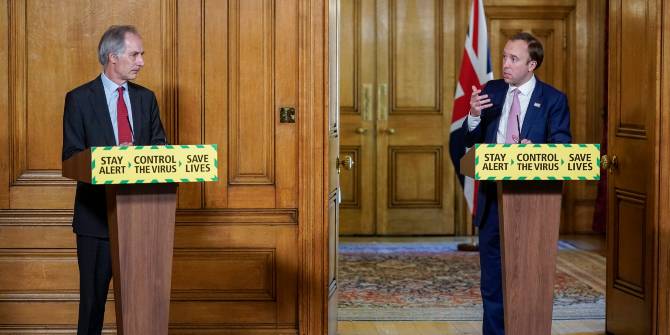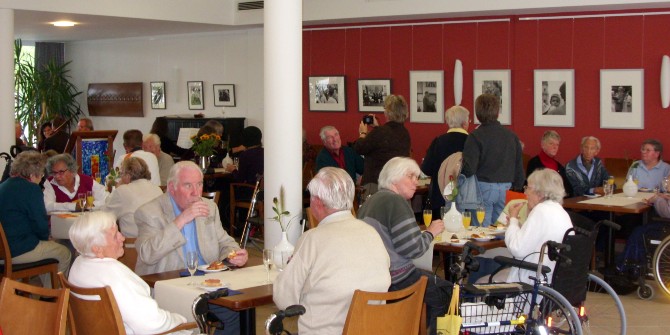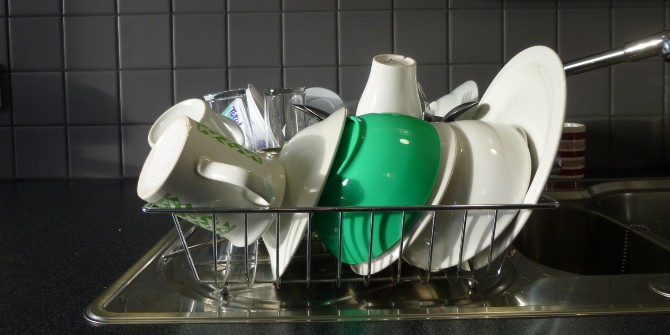Scientists can provide expert advice, but only the government can decide what policies to implement. George A Wharton, Lucy Thompson and Rebecca Forman (LSE) warn that holding ‘the science’ responsible for these difficult decisions, without seeking a variety of opinions and sharing the evidence of how they were made, will make scientists reluctant to share their expertise for fear of being scapegoated.
Throughout the COVID-19 pandemic, the UK government has insisted it is being “guided by the science”. And yet, despite weeks of criticism, there is still no clarity as to which science it means.

The government’s Scientific Advisory Group for Emergencies (SAGE) is responsible for ensuring that “independent” scientific advice is provided to the government, but it does so in a black box. Its list of members was – until last week – a secret, its meetings remain closed and the minutes from these are rarely published.
It should come as no surprise, then, that some of Britain’s top scientists have asked whether they can trust the government’s approach. David King, a former chief scientific adviser to the government has openly admitted he was “shocked” to discover Dominic Cummings has attended several SAGE meetings: “I don’t know what advice the government is receiving, and there isn’t the freedom for the scientists to tell the public what their advice is.”
Closed-door thinking restricts variety, and black-box policymaking can lead to extreme consequences. Without greater transparency, scientists are in a dangerous predicament as they can easily be made the ‘fall guys’. Last week, Dr Thérèse Coffey – notably, the only member of the cabinet with a PhD, and in chemistry no less – suggested “wrong” scientific advice could have led to mistakes in the government’s response to the pandemic. The Work and Pensions Secretary claimed ministers had followed the guidance of experts in their every response to the virus but that they could only make judgments and decisions based on the information and the advice they had at the time. “If the science at the time was wrong,” she added, “I am not surprised if people think we made the wrong decision.”
Venki Ramakrishnan, president of the Royal Society, has made the important point that questioning scientific evidence is crucial, but attacking and criticising scientists is misguided. Scientists are less likely to share vitally frank opinions if they fear the finger will be pointed at them later on.
As other members of the academic and scientific community will attest, scientific advice is not black and white. In fact, the success of any science is dependent on a culture of openness and diversity of opinion. For successful policymaking to happen, the government must strive to listen to as many different perspectives as possible and plan for every eventuality. And in order to calm the increasing anxiety within the general population, it must also demonstrate that it is doing so with a greater level of transparency.
The connection between scientific advice, risk and evidence-based policymaking is not a new one – in written form, it dates back to the Philips Report in 2000. Scientific advice can and should only ever be considered as a risk assessment. It is the policymaker’s role to be “guided by” this advice and to add to it an understanding of extraneous risks to society – be it the economy, mental health or the environment – to take a risk management decision, and create an evidence-based policy. That is not the role of the science or the scientist, but the role of the policymaker.
Not only are scientists at risk of becoming scapegoats for bad policy due to a lack of transparency, but policies are also more likely to fail if the public does not have clarity as to why these decisions and choices are being made. Transparency and scrutiny would improve public faith in government and make its decisions more defensible – even when they turn out to have been wrong.
Dominic Cummings’ 264-mile lockdown trip has clearly undermined public trust in government. A police and crime commissioner has come forward to warn that lockdown rule-breakers have started to use the actions of the prime minister’s top adviser as an excuse to breach COVID-19 containment measures. A transparent and accountable process would have caught and addressed this at an earlier stage and prevent it feeling like a case of one law for the policymakers and advisers and another for everybody else – scientists included.
It is becoming ever clearer from the COVID-19 pandemic that with any disease there is a trade-off. Public health is in itself a trade-off. And in order to strike the balance of costs and benefits, the government should adapt firstly its approach to promote inclusivity – to increase variety in the advice it takes on board – and secondly its skill in interpreting evidence to formulate and evaluate policy options. This would lead to better political choices and public policy outcomes.
This post represents the views of the authors and not those of the COVID-19 blog, nor LSE.






2 Comments